A peek into the life of an ambassador’s wife
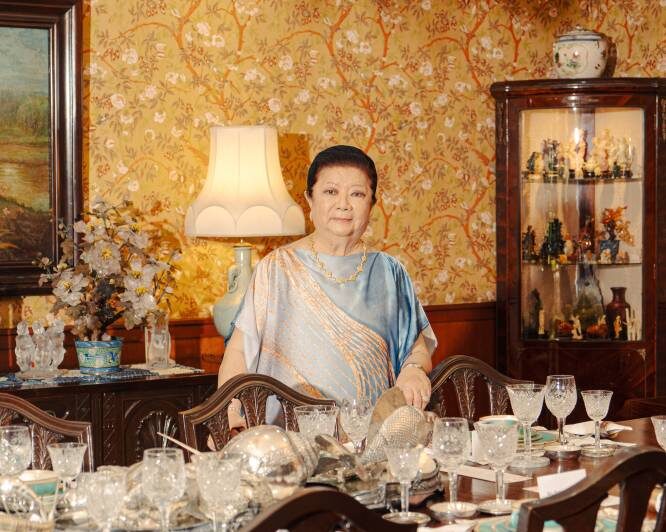
The Golden Rule: “Treat others the way you want to be treated.”
In 2007, it was a luncheon when I first stepped into the home of my then-future mother-in-law. The grand hostess that day was her mother, lovingly called Mama Millie. The dining room was exquisite and the pièce de resistance was fried pigeon. I was assigned a seat at the table and the rest is history.
Fast forward to 2025, I now find myself in that same room, reflecting on a space that has hosted titans of the industry, distinguished diplomats, and a lifetime of memories. A room where tradition and heritage is not merely preserved but proudly performed.
I asked my mother-in-law, Mrs. Maria Teresa del Rosario Zeller or Pinky, as friends would affectionately call her, what prepared her to be an Ambassador’s wife, and she replied:
“One must be trained from the cradle, if possible, how to behave, how to be gracious, how to be natural. It is a privilege that can’t be learned overnight. It is in your thoughts, your speech, your manners. A reflection of your upbringing that stays with you forever.”
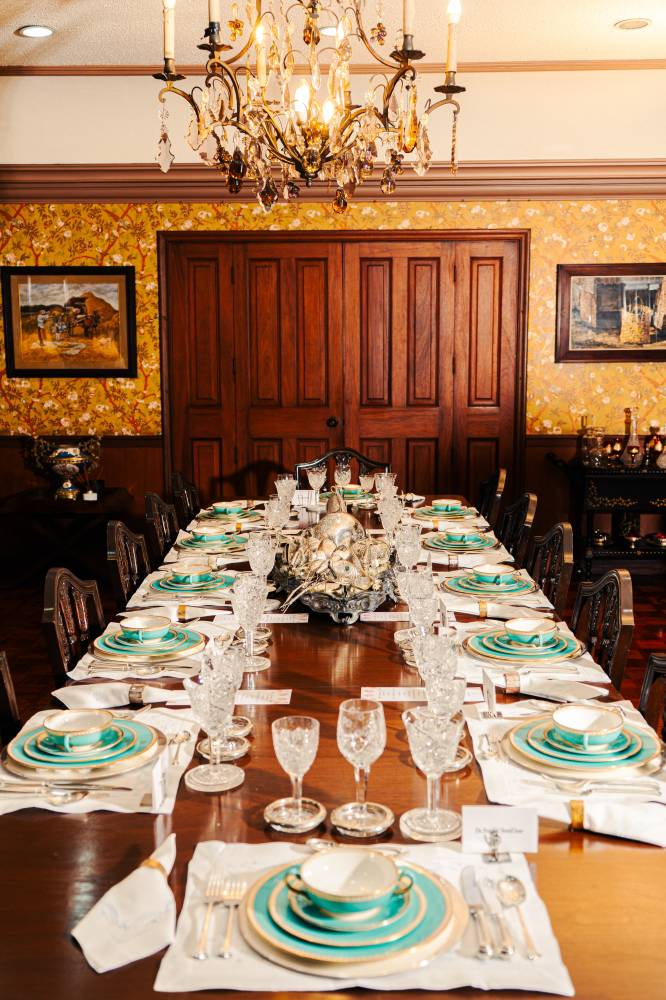
Born during the Japanese war, Pinky was the first and only daughter among six sons of the late Ambassador Ramon del Rosario, Sr. and Mrs. Milagros del Rosario. One story stands out, during the Japanese Occupation, soldiers barged into their home looking for suspects who were against them and attempted to arrest her father. The young Pinky, instinctively diplomatic, brought a glass of water to the officer. He took the glass and, perhaps reminded of his own daughter back in Japan, spared her father. The family dog, tragically, was not so lucky.
After the war, her father, Mr. del Rosario, alongside a mighty league of entrepreneurs, helped spark the industrial renaissance of the Philippines, founding Filoil, Bacnotan Cement, and the Jaycees to name a few.
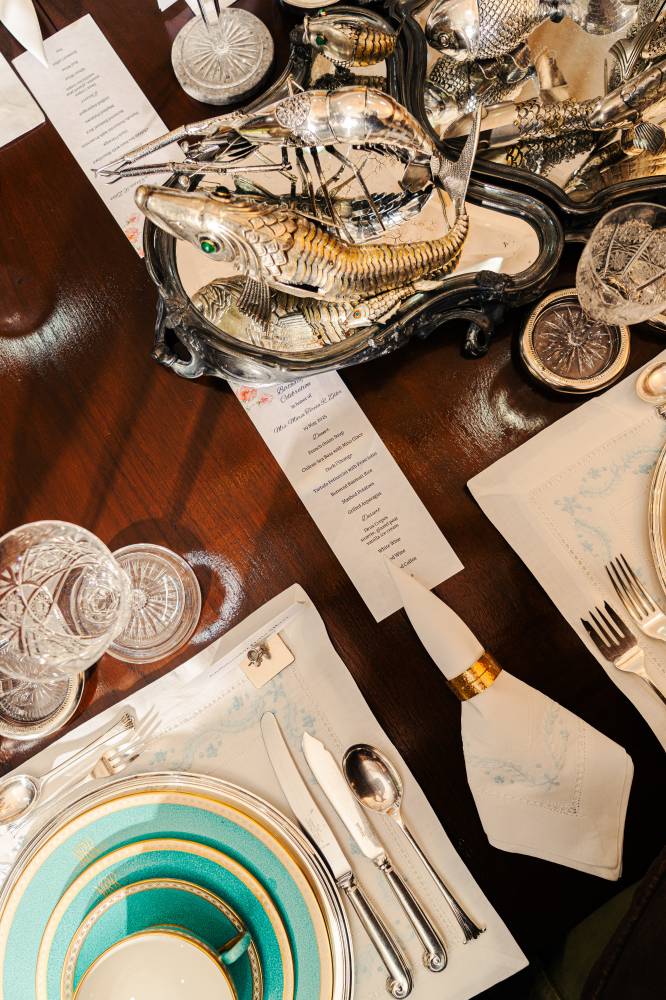
In 1948, they moved into their new home, the same one Pinky lives in today. It was a home where the dining room was filled with distinguished guests, ladies dressed to the nines, while laughter flowed freely as did the vodka. Her parents were also often out, but her father made sure his children attended important functions such as inaugurations and banquets. Not just for the spectacle, but also for the schooling.
Pinky was educated at Assumption and, later on at age 15, sent to a finishing school in Avila, Spain. Her brothers went off to La Salle and later, universities across the globe.
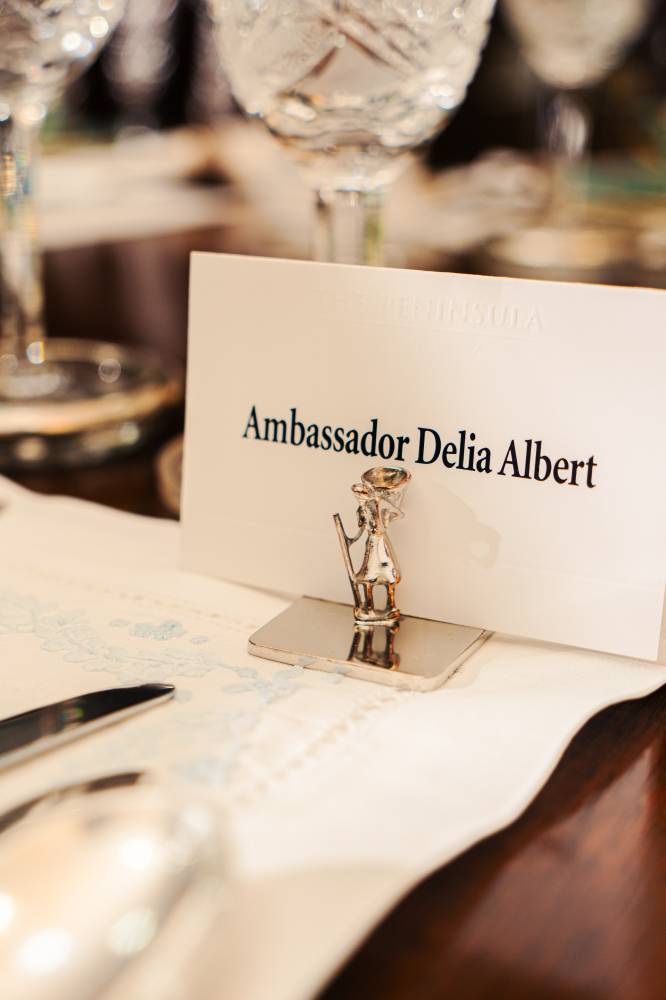
In 1957, PHINMA was founded. Her father, a visionary, brought Harvard University’s guidance to the Philippines by co-founding the Asian Institute of Management, a move that shaped generations of business leaders. But it was the life lessons, not the achievements of her father, that made the deepest impression on Pinky.
Over the years, time spent visiting her father who was appointed Ambassador to Canada, Germany, and Japan opened the world of international diplomacy to her.
As fate would have it, Pinky would eventually marry Dr. Klaus Zeller (former German Ambassador to the Philippines, Austria, Australia, and Iran) which would give her the role of Ambassador’s wife.
According to her, no two diplomatic posts were alike. Klaus, ever the gentleman, was often heard saying how amazed he was at her effortless handling of complex diplomatic functions “without formal training.” She was a natural and that, dear reader, is the highest of compliments.
In diplomacy, even dinner is a matter of state. Seating is strategic, not by nationality, but by seniority. The longest-serving Ambassador sits closest to the host. A misplaced name card is not just a social faux pas. It is a potential international incident.
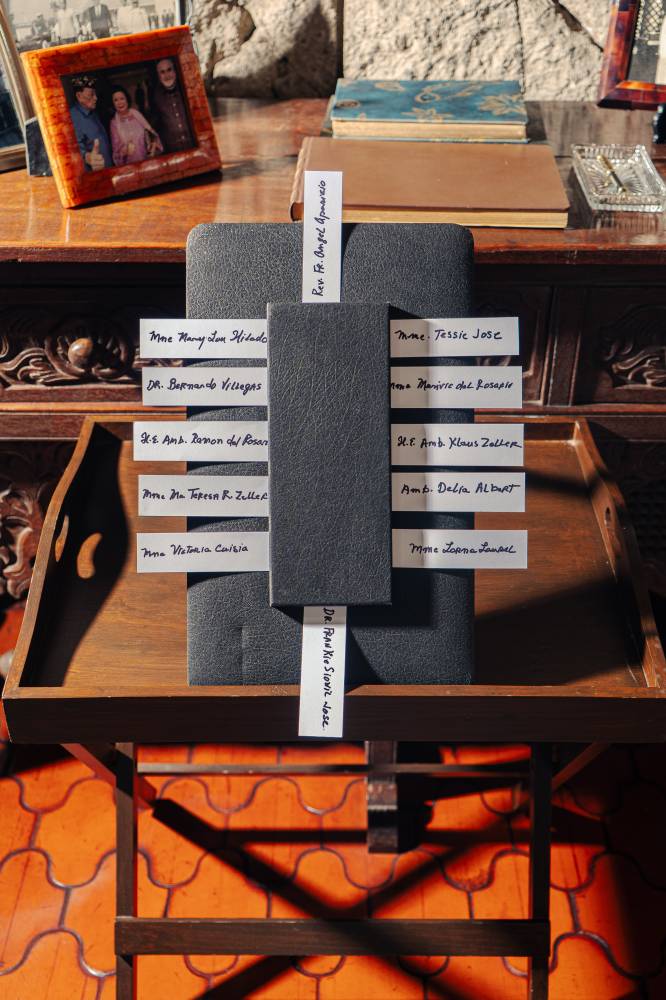
Upon arrival, guests are first greeted by staff, then invited to sign the guest book and inspect “the Placement,” an elegant, leather-bound seating chart placed near the dining room entrance. If a guest objects to their seat, they may politely request a change or quietly leave. No drama, just protocol.
Because here’s the thing, diplomacy is in the details and the rules are there for a reason which is to foster relationships between nations. One carefully curated conversation at a time.
As an official representative of their country, an Ambassador embodies national interest. The spouse, in turn, must know when to be gracious, when to be firm, and when to glide through a room like a well-informed breeze.
And should a conversation veer off course, only the Ambassador may steer it back. Crisis management with canapés.
At evening’s end, the Ambassador and spouse must escort every guest to the door, bid them farewell and remain until the last car pulls away. Only then is the night truly over.
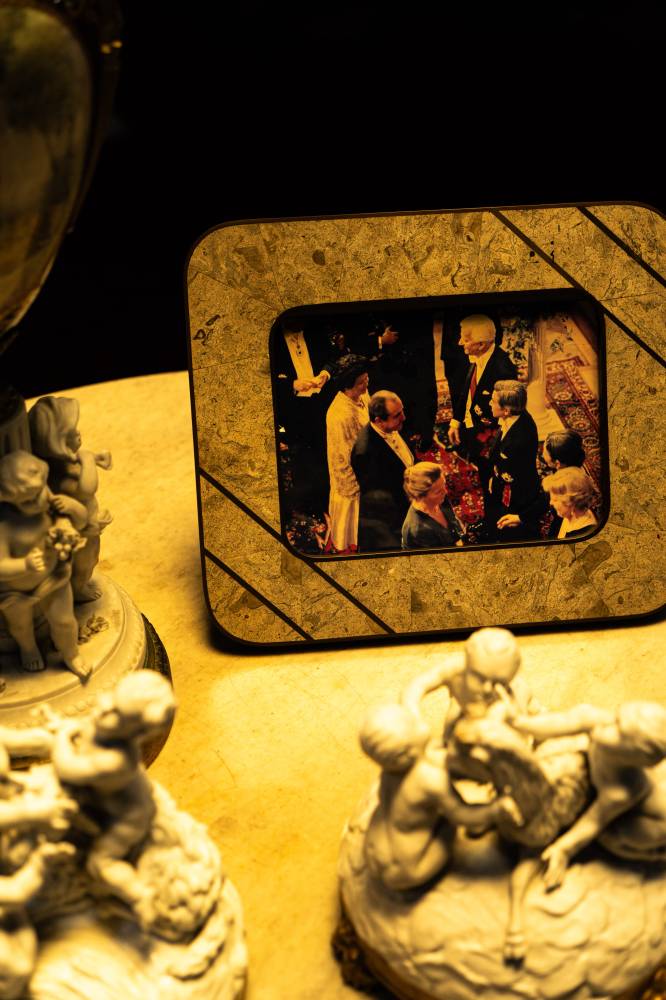
But here is what I have learned. You don’t have to be born into this world to thrive in it. Hosting is not about showing off. It is about showing up—elegantly, warmly, and with purpose.
Sophistication is not about perfection. It is about unlocking your inner queen. Knowing the rules well enough to bend them with grace. Hosting can be formal or fun, classic or creative. The goal is always the same, make your guests feel seen, special and maybe just for a night, like royalty.
SIDEBAR:
Tableware essentials
A well-set table does not require a lavish collection. Just thoughtful basics.
Entertaining Basics
Dinner plates: 8–12
Salad/appetizer/dessert plates: 8–12
Cutlery sets: 12 or more (allow extras)
Tea/coffee set: 12 (optional)
Glassware
Wine glasses: 12 (universal tulip-shaped work well)
Water glasses: 12
Champagne flutes: 12
Serveware and linens
Serving platters: 2–3 versatile sizes
Tablecloths: 2–3 (neutral + one print)
Cloth napkins: 12–16
What to inherit
Silverware, crystal, china
What to invest in
White porcelain
Crockery
Neutral linens
Quality cutlery

















